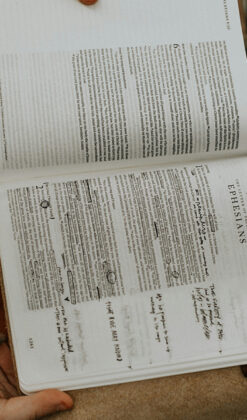The following post is written by Dr. Joey Dodson
The day after Thanksgiving , my wife pulled out our Christmas decorations as usual. In response, I trumpeted to my children: “Come on, it’s time to deck our halls with boughs of jolly.” Disgusted, one of my kids asked why we would adorn our halls with bowels. “Is that like a Passover thing?!”
For those of you not from the South, you may be surprised how many misunderstandings result from our accents. For instance, having grown up in the Deep South during the 80’s, I could not understand for the longest time why in Acts 2 the Lord sent a mighty Russian wind at Pentecost. On some level it made more sense in light of the end of the chapter: “All the believers had everything in common; they sold property and possessions to give to anyone who had need. (Acts 2:44-45).” You can imagine my relief, then, when I first realized it was a “rushing wind” instead of a communist one.
Along those lines, I attribute Caspian’s (6yo) fascination with Peppa Pig as having something to do with my being an Arkansas Razorback fan. After all our team’s battle cry is “Woo Pig!” (Because Arkansas does not already have a backwoods reputation!) Anyways, once my wife pulled out our nativity, my six-year-old dashed to his room, grabbed his Peppa figure and deftly placed it beside, in his words: “the bed of Sweet Baby Jesus.” Disturbed, one of my pharisaical, know-it-all, home-schooled teenagers blurted: “You c’aint put Peppa in the manger: Jews hate swine!”
Crestfallen, my little Caspian began to fight back the tears welling up in his eyes. After casting a scowl at said-teenager, I rushed to provide a theological rational for why Peppa would have indeed been welcome in the stable. I started to borrow from Preston’s blog and argue that it was not a “stable” in the first place, but I thought that would have merely confused my son all the more. So, at the risk of being anachronistic, I told him the story of Peter’s vision about “dirty” animals, which surely featured pigs on a blanket. I told him God’s command to Peter: “Do not call anything God has made unclean!”
On beat, the preacher-scholar in me took over so that I began to explain that the Lord’s command had more to do with people than it did animals and barbeque. I shared how the vision set up Peter’s visit to the “unclean” Gentile, Cornelius, whom God wanted to incorporate into His Kingdom. In full sermon, I declared how Jesus came in a manager so that poor and disparaged Gentiles and “pigs” would be welcome in the Kingdom of Heaven. I punctuated my eloquent waxing by saying, “So basically, if Peppa ain’t welcome in the presence of Jesus, nobody is.”
Pretty satisfied with how I diffused the situation, I looked at Caspian for affirmation. In turn, he opened his mouth and said: “Umm, can I have some hot chocolate now?”











